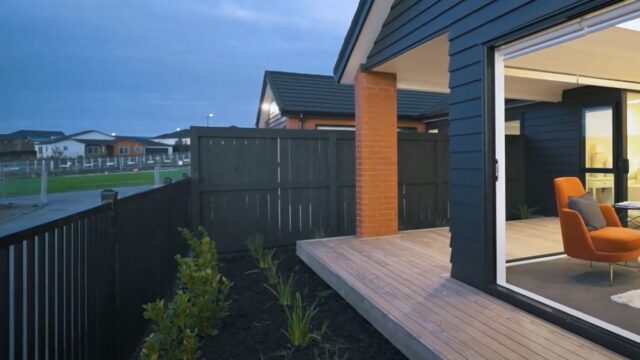Factors Influencing Fence Pricing in Auckland
Cost can be influenced by various elements, including material, design, complexity of fence installation, and even location. Here’s a breakdown of how these factors can play into the overall cost of fencing:
- Material Costs:
Different fencing materials vary in costs. Timber, metal, vinyl, and composite fencing all have distinct price ranges.
- Labour Costs:
Depending on the complexity of the job, labour rates may vary. Skilled tradespeople may charge more, but their expertise can ensure quality workmanship and longevity of the fence.
- Site Preparation:
Uneven ground, heavy vegetation, or existing structures can influence preparation time and costs.
- Auckland Council Bylaw Requirements:
Depending on the suburb and regional council, there might be specific fencing standards or codes that need adherence. These can affect the type of material, height, or design of the fence. Some areas like Central Auckland or Waitākere Ranges might have specific guidelines to follow.
A Glimpse into Different Fencing Materials and Their Costs
- Timber Fencing:
A popular choice due to its natural aesthetic, timber fencing typically costs around NZD $150 – $350 per metre, including installation. However, it requires maintenance to prevent decay and termite infestation.
- Metal Fencing:
Offering durability and security, metal fences like Colorbond or aluminium cost approximately NZD $200 – $450 per metre.
- Vinyl or PVC Fencing:
Known for being low-maintenance and durable, the cost for vinyl fencing ranges between NZD $250 – $500 per metre.
- Composite Fencing:
A mix of wood fibre and plastic, composite fencing offers the best of both worlds. The cost lies in the range of NZD $300 – $550 per metre.
NZ WorkSafe Guidelines and Their Impact on Costs
It’s essential to be familiar with NZ WorkSafe requirements when installing fences. Ensuring safety during the construction phase may require the hire of additional equipment or safety measures which can influence the overall cost.
Alternative Fencing Options in Auckland
While the above materials are commonly used, there are alternatives worth considering:
- Bamboo Fencing:
Environmentally friendly and presenting a unique aesthetic, bamboo fencing costs around NZD $100 – $300 per metre.
- Wire Fencing:
Especially useful for larger areas or farms, wire fencing is relatively cheaper, ranging from NZD $50 – $200 per metre.
- Brick or Stone Walls:
Though not strictly fencing, brick or stone walls offer a solid barrier. They are more expensive, costing between NZD $500 – $1000 per metre, but offer unrivalled durability and style.
Comparison Table of Fencing Options in Auckland
| Fencing Material | Approximate Cost per Metre | Pros | Cons |
| Timber | NZD $150 – $350 | Natural look, customizable | Requires maintenance |
| Metal | NZD $200 – $450 | Durable, various designs available | Can be pricier |
| Vinyl | NZD $250 – $500 | Low maintenance, long-lasting | Can be expensive |
| Composite | NZD $300 – $550 | Durable, varied designs | Slightly expensive |
| Bamboo | NZD $100 – $300 | Eco-friendly, unique look | Might not suit all homes |
| Wire | NZD $50 – $200 | Affordable, covers large areas | Not the most aesthetic |
| Brick/Stone Wall | NZD $500 – $1000 | Extremely durable, premium look | Most expensive, complex installation |
Selecting the right fence for your property involves balancing cost, aesthetics, and functionality. It’s recommended to consult with professional fence builders in Auckland’s construction industry, ensuring you get the best advice tailored to your specific needs and local regulations.
Frequently Asked Questions (FAQs) about Fencing in Auckland
What is the most affordable fencing material in Auckland?
Wire fencing tends to be the most affordable option, with prices ranging from NZD $50 – $200 per metre.
How do Auckland Council bylaws affect my fencing choice?
Depending on your specific suburb and regional council, there might be bylaws regarding fence height, material, or design. It’s essential to consult these before finalizing your choice to ensure you’re compliant.
Do I need to consider any health and safety regulations when installing a fence?
Yes, NZ WorkSafe has specific guidelines to ensure safety during construction. This might influence the overall cost, depending on any additional safety equipment or measures required.
Is vinyl (PVC) fencing durable enough for Auckland’s weather conditions?
Absolutely. Vinyl fencing is known for its durability and is resistant to Auckland’s varying weather conditions, making it a long-lasting choice.
How often will I need to maintain a timber fence?
Timber fences require regular maintenance to prevent decay and insect infestation. Depending on the wood type and finish, maintenance might be needed every 2-5 years.
Are there any eco-friendly fencing options available in Auckland?
Yes, bamboo fencing is an environmentally friendly option, offering a unique aesthetic while being sourced sustainably.
Can I install a fence by myself, or should I hire professionals?
While some individuals choose DIY installation, hiring professionals ensures adherence to local regulations, quality workmanship, and might save you money in the long run due to fewer mistakes and potential rework.
Key Takeaways on Fencing Costs in Auckland:
Material Choices Impact Cost: The type of fencing material chosen, whether timber, wire, vinyl, or bamboo, significantly affects the overall cost per metre, with each having its unique price range.
Regulations and Bylaws Play a Role: Auckland Council bylaws, and regional variations thereof, influence fence choices. Adhering to local regulations can avoid additional costs and legal hassles in the future.
Safety Isn’t Optional: NZ WorkSafe guidelines necessitate certain safety protocols during fence installation. This consideration is crucial, especially when budgeting, as it can affect the overall cost.
Maintenance Costs Over Time: While upfront costs are essential, considering long-term maintenance expenses, especially for materials like timber, is vital for an accurate budget estimate.
Professional Installation is Beneficial: Though DIY might seem cost-effective initially, hiring professionals can ensure quality, adherence to regulations, and long-term durability, often providing better value for money.
